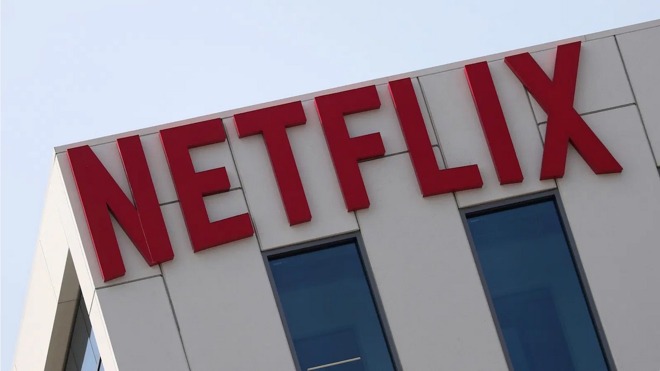Vietnam accuses Netflix, Apple TV+ of skirting taxes in the country
Vietnam has accused Netflix and Apple of skirting tax responsibilities in the country, claiming that it adds unfair competition for domestic companies.

Credit: Reuters
More specifically, the country's information minister said that streaming companies like Netflix and Apple TV+ have combined revenues of nearly one trillion dong ($43.15 million), but have never paid any taxes in Vietnam, Reuters reported.
"Domestic companies have to abide by tax and content regulations while foreign firms do not, which is unfair competition," Minister Nguyen Manh Hung said during a government meeting.
Those content regulations include rules related to "the history and sovereignty of [Vietnam], violence, drug use, and sex," Hung said. Netflix was told to remove "Full Metal Jacket," a Vietnam war movie, from its catalog in the country, as an example.
Additionally, Vietnam also passed a cybersecurity law in 2018 that requires foreign streams earning money from online activities to store their data locally.
Netflix, in a statement to Reuters, said it has no plans to operate local servers or open offices in Vietnam. It did add that it is supportive of a mechanism that would allow it to pay taxes in Vietnam.
Apple, for its part, is reportedly mulling the creation of a $1 billion data center and R&D facility in the country. The company's Apple TV+ service has been available in Vietnam since its launch on Nov. 1, 2019.
The effort from Vietnam is part of a broader push in Southeast Asia to tax tech giants more. Countries like The Philippines, Thailand, and Indonesia have also recently passed or created legislation that would ensure foreign companies pay tax.

Credit: Reuters
More specifically, the country's information minister said that streaming companies like Netflix and Apple TV+ have combined revenues of nearly one trillion dong ($43.15 million), but have never paid any taxes in Vietnam, Reuters reported.
"Domestic companies have to abide by tax and content regulations while foreign firms do not, which is unfair competition," Minister Nguyen Manh Hung said during a government meeting.
Those content regulations include rules related to "the history and sovereignty of [Vietnam], violence, drug use, and sex," Hung said. Netflix was told to remove "Full Metal Jacket," a Vietnam war movie, from its catalog in the country, as an example.
Additionally, Vietnam also passed a cybersecurity law in 2018 that requires foreign streams earning money from online activities to store their data locally.
Netflix, in a statement to Reuters, said it has no plans to operate local servers or open offices in Vietnam. It did add that it is supportive of a mechanism that would allow it to pay taxes in Vietnam.
Apple, for its part, is reportedly mulling the creation of a $1 billion data center and R&D facility in the country. The company's Apple TV+ service has been available in Vietnam since its launch on Nov. 1, 2019.
The effort from Vietnam is part of a broader push in Southeast Asia to tax tech giants more. Countries like The Philippines, Thailand, and Indonesia have also recently passed or created legislation that would ensure foreign companies pay tax.

Comments
I'm glad that there are people in Vietnam with the money to spend on Netflix and Apple stuff. The country has a very high poverty rate and not very good infrastructure,. Companies paying their taxes will help the government make improvements (hopefully - I also don't have much faith in governments not wasting their resources.)
We haven't heard Apple's or Netflix's side of this. I think they generally operate in good faith with the intent of paying what's due. It may well be that neither company has an operating profit in the country. The fact that they have revenues does not mean that they're making any money out of it.
Do you really mean to say that TV shows make a country more civilized? I think the problem is that tax rules have not been adjusted enough to prevent abuses (like many multinational paying literally no taxes)
I would dispute that they operate in "good faith" - this is not heir business purpose. Their fiduciary duty is to maximize shareholder value. This means that they will try any (until now) legal way to reduce their taxes. I obviously have no problem with a non profitable business not paying taxes. But we all know how easy it is to fudge the numbers with transfer pricing and shifting intellectual property around so high tax countries pay high fees reducing their profitability and their tax burden. However, this is all virtual and has no real grounding in reality.